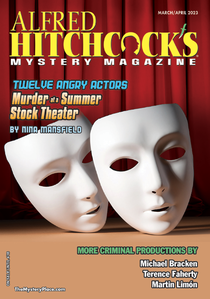By Thomas Kies
For the last few months, I’ve been mentoring a
critique group that meets every Monday night at a local wine bar. The perfect location for the perfect Cabernet
or Malbec and pleasant discussions about writing.
Most of the members of the critique group are
holdovers from my last creative writing class. Once the class was over, they
surprised me by offering to pay me (real money) to run a critique group. I declined the cash but instead said that I’d
run the group on one condition—that they critique chapters of the book that I was
working on at the time.
They accepted and we’ve been working together and
drinking wine ever since.
One of the more heated discussions we entered was
initiated by a writer who has self-published four books (a series of mysteries)
and is eagerly looking for an agent and a traditional publisher.
When she read chapters from her new work in progress,
I mentioned that she “head hopped” and I couldn’t get invested in the
characters.
I had warned them that I would be honest in my critiques
of their writing.
Head hopping is when a story or a chapter is being
told from a character’s perspective or point of view and then abruptly, it
changes, and the story is being told from a different character’s
perspective.
When I mentioned this, she couldn’t believe that she’d
done it. I took her chapter home and
physically marked off all the places she changed points of view…sometimes in
the same paragraph.
She asked, “Why is that bad? How else can I tell the reader what the
characters are thinking?”
Let’s start with why it’s bad. For one, it’s distracting as hell. One of the reasons I was having a problem relating
to the characters was that I was never sure who I was supposed to be relating
to. When I read a book, I want to be immersed in that world, which means I’m
seeing it through the eyes of the characters in that particular scene.
You can’t do that if you’re flip flopping from
character to character, hearing the thoughts of different people from one
sentence to the next.
I suggested that the writer show me what someone is
thinking. If Sally is having angry
thoughts, demonstrate it. Have Sally
throw a coffee cup across the room, screaming words that would make a sailor
blush.
If Charlie is embarrassed, have him blush and turn
away, staring at his own shoes.
Head hopping keeps the reader from becoming
emotionally invested in a character and, worse yet, is confusing.
So, can you change POVs? Of course you can. Especially if you’re writing in omniscient third
person POV. But when you do, you should
do it in some kind of scene break or in a new chapter. Otherwise, it’s jarring and confusing.
So, that was a discussion that lasted over more than
one glass of wine.
Same writer, different discussion was the value of plot
over character. We’ll save that for another
blog. That also was a two-glass
discussion.





















